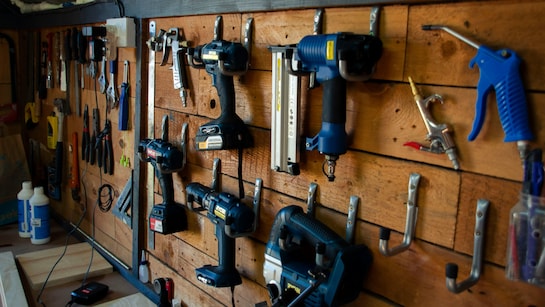NITI Aayog Report on India’s Hand and Power Tools Sector Potential
The NITI Aayog has released report titled “Unlocking $25+ Billion Export Potential India’s Hand & Power Tools Sector”. This report marks the transformative potential of India’s hand and power tools industry. It discusses the challenges and necessary interventions to strengthen the sector and enhance its global competitiveness. The report suggests that the global market for these tools is set to grow from $100 billion to $190 billion by 2035, presenting a substantial opportunity for India.
Current Market Overview
The global market for hand and power tools is currently valued at approximately $100 billion. Projections indicate this will grow to around $190 billion by 2035. Hand tools currently represent a $34 billion market, expected to expand to $60 billion. Power tools account for $63 billion, with expectations of growth to $134 billion. China dominates this market, holding share of both hand and power tools.
India’s Market Position
India’s presence in the global export market is modest. It exports $600 million in hand tools, capturing only 1.8% of the market. For power tools, exports stand at $470 million, representing 0.7% of the global share. The report identifies potential for India to capture $25 billion in exports over the next decade.
Employment Opportunities
Achieving a 10% market share in power tools and 25% in hand tools could create approximately 3.5 million jobs. This potential growth in employment puts stress on the importance of the hand and power tools sector for India’s economy.
Challenges to Competitiveness
India faces a 14-17% cost disadvantage compared to China. This gap arises from higher structural costs and smaller operational scales. Elevated raw material costs, lower labour productivity, and high logistics costs further hinder India’s competitiveness.
Recommended Interventions
The report outlines three key intervention categories to enhance the sector:
- Developing Clusters: Establishing 3-4 world-class hand tool clusters with advanced infrastructure is critical. These clusters should operate under a public-private partnership model. They must include plug-and-play infrastructure, worker housing, and essential facilities.
- Addressing Cost Disadvantages: Reforms are needed to rationalise Quality Control Orders and import duties on raw materials. Simplifying the Export Promotion Capital Goods scheme and modifying labour laws will also enhance competitiveness.
- Providing Cost Support: Bridge cost support is essential to offset disadvantages. The report suggests that an investment of RS. 8,000 crores may be needed to achieve this, which could generate tax revenue.
Strategic Importance for Economic Growth
The hand and power tools industry is foundational to the global manufacturing ecosystem. Strengthening this sector is vital for India’s ambition to become a global manufacturing hub. It aligns with the “Make in India” initiative and is crucial for achieving the vision of a developed nation by 2047.
Month: Current Affairs - April, 2025
Category: Reports & Indexes Current Affairs








